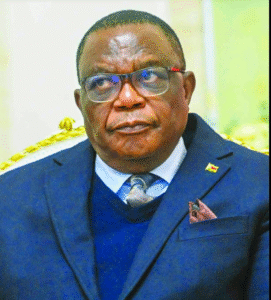NEPOTISM IN ZIMBABWE: A THREAT TO DEMOCRACY AND GOOD GOVERNANCE

In an era where transparency, accountability, and merit-based governance are touted as the hallmarks of democratic progress, Zimbabwe continues to struggle with a deeply entrenched issue: nepotism in government appointments. Under President Emmerson Mnangagwa’s leadership, the country has come under growing scrutiny over allegations of favouritism, cronyism, and the placement of politically connected individuals in key government positions.
These concerns are not just coming from the local populace. Nevers Mumba, the head of the SADC Election Observer Mission (SEOM), has been outspoken in his criticism of the current administration’s approach to governance. Rejecting accusations from ZANU PF that his team’s damning post-election report was influenced by foreign interests or political bias, Mumba maintained that their findings were rooted in Zimbabwe’s own Constitution, its Electoral Act, and the established SADC Guidelines. His defence of the report underscores a broader demand for integrity and rule-based leadership in the region.
At the heart of the matter lies a troubling pattern that stretches well beyond isolated incidents. Nepotism has become almost routine, with government positions seemingly handed out not based on qualifications or experience, but on familial ties, political allegiance, or personal loyalty to the ruling elite. This not only violates principles of good governance, but it also strikes at the heart of democratic ideals, where public office should be earned through competence, not connections.
The damage caused by nepotism is multifaceted. Firstly, it severely undermines public trust. When ordinary citizens perceive that those in power are serving their own families and inner circles rather than the nation at large, cynicism grows. A government that is seen to be rewarding loyalty over ability quickly loses legitimacy in the eyes of the people.
Secondly, the consequences for governance itself are profound. Appointing individuals to critical roles without the necessary qualifications leads to inefficiency, corruption, and poor service delivery. In a country grappling with a stagnant economy, high unemployment, and decaying infrastructure, this failure to prioritise merit has real and harmful consequences. Zimbabwe simply cannot afford the luxury of incompetence in high office.
This culture of exclusion and favouritism also sends the wrong message to Zimbabwe’s youth. For a generation already disillusioned by limited job prospects and economic instability, seeing unqualified individuals rise through the ranks due to who they know rather than what they can do is both demoralising and unjust. It erodes the belief that hard work and merit can be rewarded, fuelling a sense of hopelessness among the country’s future leaders.
The SADC Observer Mission’s firm stance on Zimbabwe’s flawed election process, as emphasised by Mumba, should serve as a wake-up call. Governance and electoral credibility are not achieved through rhetoric or intimidation, but through concrete adherence to constitutional principles and fair practices. The fact that regional and international observers are now calling out these shortcomings with increasing boldness reflects how dire the situation has become.
To rebuild trust, the Mnangagwa administration must take tangible steps. It should begin by instituting transparent and independent vetting procedures for all public appointments. There must be clear criteria for selection, based on qualifications, experience, and track record. Any credible allegation of cronyism must be met with an impartial investigation and, where appropriate, disciplinary action.
Moreover, civil society, the independent press, and watchdog institutions must continue to play their role in exposing malpractice. A healthy democracy depends on an informed and engaged public. Without scrutiny, nepotism will continue to flourish in the shadows, unchallenged and unchecked.
In conclusion, the ongoing allegations of nepotism in Zimbabwe’s government highlight a dangerous erosion of democratic norms and governance standards. If left unaddressed, this culture of favouritism threatens to weaken institutions, derail economic recovery, and push the country further from the ideals it claims to uphold. President Mnangagwa has a responsibility not only to answer these allegations but to chart a new path — one where public office is a privilege earned through merit, not a reward granted through loyalty. Only then can Zimbabwe begin to restore faith in its leadership and pave the way for genuine national progress.



